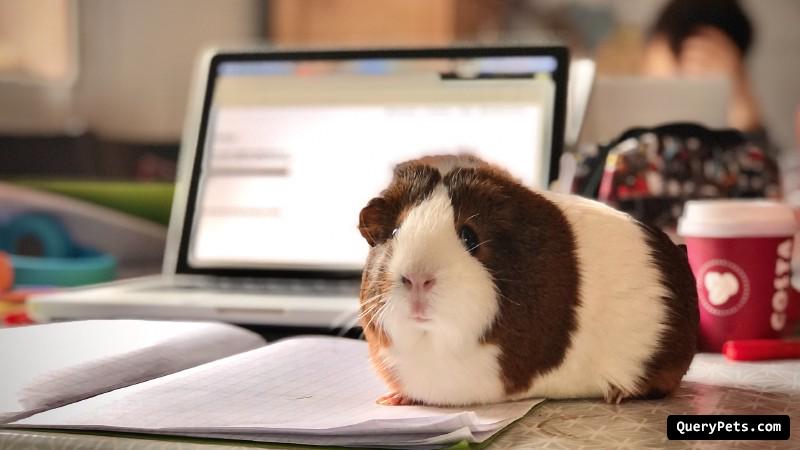How Do I Stop My Guinea Pig From Biting Me?

Guinea pigs, though renowned for their gentle nature, sometimes exhibit behaviors that are less than gentle, such as biting. The subject of guinea pig bites might sound trivial to some, but to the guinea pig owner, it is both a common and concerning issue. The reasons behind this behavior are as diverse as the guinea pigs themselves and can be rooted in natural instincts, fear, aggression, or even underlying health problems.
Understanding why guinea pigs bite and how to prevent it is crucial for the safety and wellbeing of both the pet and the owner. Not only does it promote a more enjoyable relationship, but it also helps enhance the quality of life for the guinea pig.
The goal of this article is to explore the complex world of guinea pig behavior and provide readers with actionable solutions to prevent and manage biting, ensuring a harmonious relationship between humans and their beloved pets.
How Do I Stop My Guinea Pig From Biting Me?
To stop a guinea pig from biting, it’s essential to recognize the underlying cause and address it with understanding, patience, and appropriate care. Whether it’s modifying how you handle the guinea pig, making environmental adjustments, or seeking veterinary care, pinpointing and treating the root cause will mitigate the biting behavior.
Understanding Why Guinea Pigs Bite
Natural Behavior and Instincts
Guinea pigs exhibit various natural behaviors and instincts, with biting often serving as a form of communication or exploration. Gnawing and nibbling might be ways for them to test objects, express curiosity, or signal boundaries. For guinea pigs, biting isn’t always an aggressive act but rather a reaction shaped by their instinctual behavior.
Signs of Fear or Aggression
Fear or aggression in guinea pigs might lead to biting, especially when they feel threatened or cornered. An unfamiliar environment, sudden movements, loud noises, or improper handling can invoke fear or aggression, leading to a defensive bite. Recognizing the triggers that cause these emotions and avoiding them can significantly reduce biting incidents.
Health-Related Causes
Biting can also be a manifestation of underlying health-related issues. Illnesses or discomforts such as dental problems, skin irritation, or gastrointestinal issues might lead a guinea pig to act out. Regular veterinary check-ups can help in identifying and treating these problems early, preventing discomfort and the associated biting behavior.
How to Recognize Warning Signs
Body Language
Understanding a guinea pig’s body language can provide valuable insights into its emotions and intentions. Signs like stiffening, showing teeth, or aggressive posture might indicate that a bite is imminent. Observing and recognizing these signs can allow an owner to take preemptive action to calm the guinea pig or avoid a bite.
Vocalizations
Vocalizations are a key part of how guinea pigs communicate their feelings. Different sounds, such as purring, chattering, or squealing, might mean various things. Learning to interpret these sounds can act as an early warning system, providing clues about a guinea pig’s feelings and intentions, including potential biting behavior.
Preventing Biting
Proper Handling Techniques
Handling guinea pigs properly is vital to reducing the likelihood of bites. Ensuring that you pick up, hold, and carry a guinea pig gently and securely can make them feel safe, thus preventing biting as a defensive reaction. Educating yourself about proper handling techniques can make interactions more pleasant and safe.
Creating a Comfortable Environment
Ensuring that your guinea pig’s living environment is comfortable can reduce stress and biting. Proper cage setup, toys, and environmental enrichment foster a sense of security and happiness, leading to a more content and less aggressive pet.
Training and Positive Reinforcement
Training through positive reinforcement can be an effective way to encourage desired behaviors. Utilizing treats and rewards to reinforce positive actions and discourage biting can foster a more harmonious relationship between you and your guinea pig.
What to Do If You Get Bitten
Immediate Aftercare
If a bite occurs, immediate care includes washing the wound with soap and water and applying an antiseptic. Consulting a healthcare provider might also be necessary, depending on the severity. Prompt and proper cleaning and treatment of the wound are essential.
Long-Term Solutions
Reflecting on why the bite happened and making necessary adjustments will help prevent future occurrences. Consulting a vet or an animal behavior specialist might be warranted if biting continues despite your efforts.
Conclusion
Biting in guinea pigs, though alarming, is a manageable issue with proper care, understanding, and responsible pet ownership. Recognizing the various factors that might lead to biting and taking thoughtful measures to prevent them ensures a loving and empathetic relationship with your guinea pig.
Just as with any relationship, patience, empathy, and understanding go a long way in fostering a bond that is rewarding for both the guinea pig and its human companion. By following the insights and suggestions provided in this article, you can enjoy a bite-free life with your guinea pig, filled with joy and companionship.
